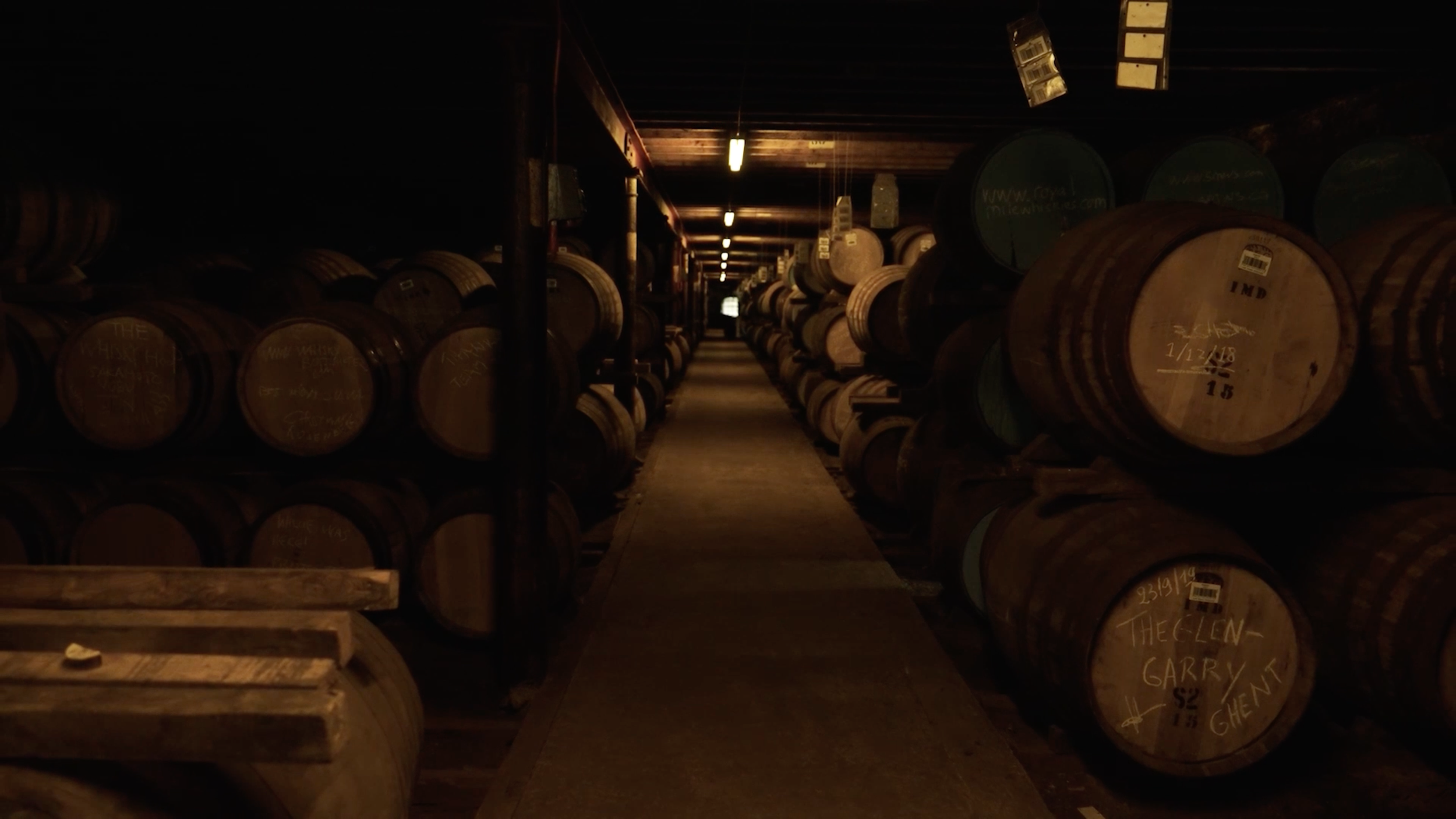
Our Plans - What’s Changed?
We’re continuing to engage on our improved plans over the coming weeks. Please take the time to read our information tiles below.
The improved plans for Longmorn Green Energy will maintain or increase all of the project’s benefits while reducing the impacts. This is a plan to benefit the rural economy in Moray, supporting local distilleries, farmers and the environment. The proposals also deliver renewable energy, tackling the Climate Emergency and reducing harmful greenhouse gas emissions.
Having benefited from previous local feedback, we are confident that the amendments to our planning application will overcome any former concerns.
1. Hello and Welcome
Acorn Bioenergy has engaged with stakeholders to improve our proposal for Longmorn Green Energy, ensuring benefits are retained while addressing local concerns.
About us
Acorn Bioenergy is a team of professionals from the engineering, agricultural and energy sectors. The team members at Acorn have decades of experience in developing renewable biomethane gas generation plants across the UK.
We are a business with a sustainable purpose. We exist to help create a zero carbon future by developing and operating renewable energy projects that benefit the environment and improve our energy security.
Acorn Bioenergy is bringing forward sites like Longmorn Green Energy across the UK in line with government goals to develop renewable biomethane gas generation plants to accelerate decarbonisation. We’re working to provide 25% of the UK’s biomethane supply. This renewable green gas will heat homes across the country and reduce our dependence on foreign gas supplies.
You can see our project team for Longmorn Green Energy here.
2. Community Fund Offer
Alongside the national benefits that Acorn’s projects bring in terms of energy sustainability, security and affordability, we also believe in sharing benefits locally. Not just by driving new investment in local farming and the rural economy, but also supporting community projects that matter to local people.
Acorn Bioenergy will establish a fund to provide investment into local community initiatives. This is separate to the planning process and would make available up to £500,000 throughout the lifetime of the project.
3. About the Site
Our site is on land to the south of Elgin west of the A941.
We have chosen this location because there are many distilleries nearby which can supply feedstock, will have minimal visual impacts on neighbours, and is not at risk of flooding.
Site History
We submitted this application in May 2023, and to date have received minimal statutory consultee objections. However, we have amended our application to address the concerns of the council and are presently undertaking a further consultation.
4. How we’ve improved our plans
We are bringing forward an improved proposal that retains all of the scheme’s benefits while addressing local concerns.
Site access: we have redesigned the site access following collaborative talks with Moray Council.
More landscape planting: in addition to the planting proposed in the original scheme, we have added extra planting to reduce any potential visual impact.
Onsite gas injection: we will directly inject renewable gas into the existing national grid infrastructure.
Enhanced wildlife: as well as retaining existing trees our proposals will deliver significant gains to biodiversity.
Distilleries: we have amended our feedstock mix to fully utilise surrounding available distillery co-products.
5. Maximising the benefits
Through amendments to the scheme, our proposals minimise the impact of landscape, maintaining or increasing all of the benefits for clean energy and the rural economy.
Our plans include:
Generating enough renewable gas to heat 8,831 homes;
Decarbonising energy generation, distilling and agriculture, essential to reducing greenhouse gas emissions and tackling climate change;
Providing a secure, renewable source of energy, reducing our dependency on imported fossil gas;
Providing 15 Full Time Equivalent jobs, with more through the construction process;
Supporting 35 further Full Time Equivalent jobs created in the supply chain.
Proposed site plan
6. How is Biomethane generated?
Anaerobic digestion is a method of generating renewable energy by breaking down organic material to produce biogas and natural fertiliser. There are currently over 700 operational anaerobic digestion sites in the UK.
Acorn Bioenergy uses distillery and agricultural material for our facilities, including distillery co-products, break crops from rotations and manure. By using organic material, we generate clean energy while avoiding unpleasant odours.
The organic material, fed into the facility is broken down by microbes. This produces:
Biomethane, a green fuel which can directly heat homes;
Green CO2, which can be used by industry to replace CO2 derived from fossil fuels;
Natural fertiliser, which will be used on nearby farms, replacing imported artificial products.
7. Site location
The site was chosen due to its close proximity to a large catchment area of distilleries and agricultural enterprises capable of supplying distillery co-products, agricultural wastes and break crops.
This project will take wastes and residues off the roads by providing a local place for them to be used, instead of transporting long distances or even disposing into the sea as some distilleries currently do.
Additionally, the site's location offers a substantial advantage to the local farming community by providing immediate access to high-quality organic digestate. This digestate serves as an excellent soil improver, enriching the soil's organic content while also sequestering carbon.
It presents a sustainable, locally produced alternative to synthetic fertilisers, which are not only carbon-intensive to manufacture but also costly to import from overseas. Moreover, digestate provides farmers with a more cost-effective solution, mitigating the price volatility and spikes associated with imported fertilisers. Farmers in the area surrounding the AD plant will benefit directly from this valuable resource.
The Longmorn site will allow for the installation of a direct pipeline connection which has been included as part of the amended submission pack. The good road links within the region provide critical assistance to the transportation of the distillery co-products.
8. Working with the community
Supporting the Local Distilling Industry
We will work hand-in-hand with distilleries by providing them with guaranteed offtake of their co-products, and then supplying them with green energy.
Acorn will be digesting whisky distillery co-products including pot ale, syrup and draff in combination with break crops and manures. Feedstocks are then delivered to the site to a secure and managed storage facility prior to being fed into the digestion process. The resulting digestate is pasteurised.
Creating Jobs
Our plans will also create 15 Full Time Equivalent jobs as well as further roles in construction, and support 35 further jobs through the supply chain. We also welcome interest from local suppliers for Longmorn Green Energy - email us at enquiries@acornbioenergy.com to register your interest.
Respecting our neighbours
We have designed our proposals to ensure that there are no unacceptable impacts on local people. In addition to landscape improvements, our plans also address, and where possible improve:
Odour – Acorn Bioenergy do not use any of the food waste or sewerage feedstocks that can generate unpleasant odours. Any farmyard manure will be transported in enclosed vehicles and will be kept in an odour-controlled building as soon as it arrives on site. Additionally, all lagoons on site will be covered as is required by regulation.
Transport – We have carried out extensive transport assessments to make sure we’re not causing problems on the local network.
Flooding – The site is not at high risk of flooding and we have prepared a strategy to ensure surface water is managed sustainably.
Nature – We will enhance nature on the site with wildflower planting and habitats for wildlife to thrive, as well as retaining existing trees. The land isn’t currently home to many species, and our plans will change this for the better, delivering a net gain in biodiversity.




